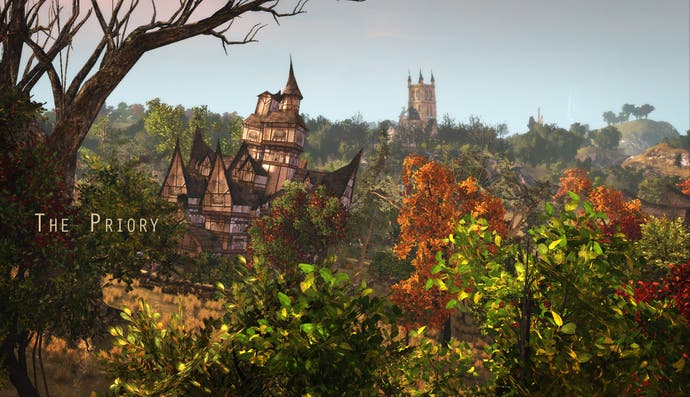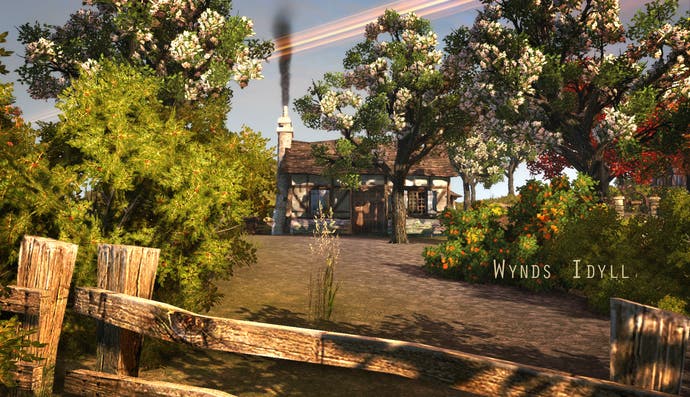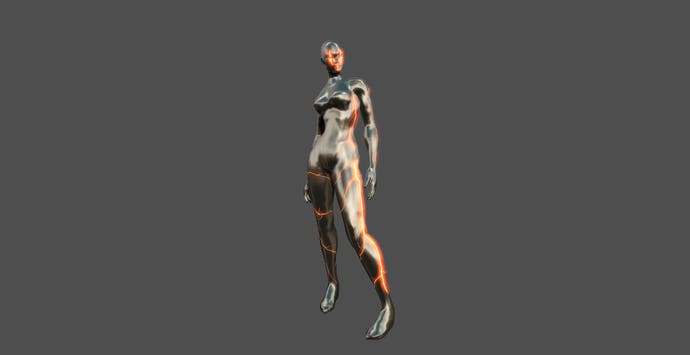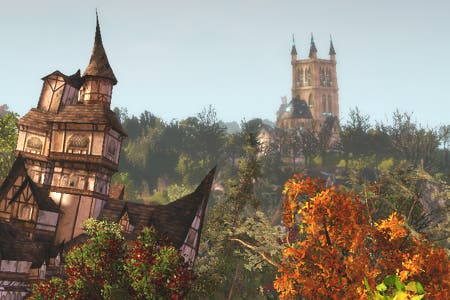Otherland Preview: Yesterday's Future MMO
A tad overdue.
A virtual world about a virtual world of virtual worlds. The gamer playing a virtual character playing a virtual character. The MMO conversion of Tad Williams's book series has an audacious, indulgent concept, but back in 2008 the stars seemed to have aligned in Otherland's favour. Oli was the last to see it, in a 2008 trip to RealU's Singapore base and, quite frankly, he was blown away.
"It must be one of the most original, thought provoking and intellectually exciting games in development anywhere," he said, "and, although you might be a fool to bet on its success, you'd be a churl to be against it. Because, in the all too-conservative world of MMOs, Otherland is exactly the kind of unlikely story we need."
Then, Otherland vanished.
In the four years since it disappeared, the world of MMOs has changed. Dark new powers have arisen in the endless tribes of free-to-play games, while other MMO heroes have almost died before taking on new life as revenant mixed-model monstrosities. Can Otherland, rescued from development hell by Gamigo and with a new free-to-play model at its heart, survive in these strange new times?

Otherland is based on the works of Tad Williams, an epic fantasy writer. A pocket review of Williams's books would call them solid science-fantasy, taking a near-future cyberpunk world and overlaying the familiar multiple worlds theme. His band of Unlikely Heroes are trapped in these fantasy worlds and must travel through them to defeat an ultimate enemy and his murderous henchmen, who are supremely powerful in the real and virtual worlds, and hence save all the world's children. Heartstrings have never been more obviously pulled, but the unusually diverse characterisation of the heroes pulls the books through.
Williams uses the many worlds to pastiche other familiar books, ranging from Edgar Rice Burrough's Princess of Mars, and Lewis Carroll's Through the Looking Glass to The Wizard of Oz and The Odyssey. Given that these pastiches are constructed by the slightly unimaginative evil billionaires running Williams's world, they're justifiably cheesy places indulging each billionaire's god-complex.
RealU has pretty much promised that the major worlds from Tad's books will appear in the game, especially those worlds that feature heavily in the first book; an extremely-grim First World War sim and Mars, as envisioned by 19th century astronomers and science fiction writers (which Oli saw). Other worlds that feature in the books are a recreation of ancient Egypt, and a steam-punk Mayan empire (complete with mobile phones).
The first place we dropped into lives up to the premise of Williams's books. The opening area and virtual hub is called Lambda Mall, an enthusiastic tribute to the cyberpunk dreams of the '80s complete with billboards stretching to infinity, endless Tardis-like structures drawn from every culture and an array of strange shops hawking outfits.

As your blank avatar arrives in Otherland, it's clear that your presence is something of a surprise - especially to Renie, the heroine of the books, who's loitering at the portal to Lambda Mall. You seem to be a simulation, a puppet, but you have independent action. Surprised, she sends you off to hide in the English Pub, one of at least 14 bars in Lambda Mall. Three cocktails later, you find yourself with an unfeasibly large bar tab and a series of fetch quests to pay it off, which happen to take you on a small tour of the mall's sights.
At the moment, as visually arresting as that is, Lambda Mall is just bars and shops. We're assured that the hacker zone elements of it (accessed through the back door of the English Pub) are more interesting, as they're focused on PvP and the black market, but we didn't have time to try them. The bars supply players with drinks, the game's buffs. They also contain a range of mini-games - a Roswell game, an airplane-shooting game, pool table, and so on - which speaks of an attempt to justify their existence somewhat.
The few shops that are open allow you to choose your class and move your character away from the standard design you arrived with. The character creator owes as much to Saints Row as it does to City of Heroes - but it's got the joyous flexibility of both of them, though not the array of animations of Champions Online. Three body types (including a delightfully gangly alien) are available as well as a wide range of colours and skin patterns.
Also notable are the array of costumes to purchase in Lambda's shops, drawn from every virtual world and work of fiction, allowing you to create particularly unique looking monstrosities (though there was some resource-based limit on how many costume pieces our avatar could wear, even if we owned them). Of course, Gamigo will push premium items through the store, but plenty of items drop from quests and enemies too.

Once dressed we get to see the first new area shown since 2008, which will be familiar to readers of Williams's first book, City of Golden Shadow. It's Eight Squared, his Through The Looking Glass analogue, set in a world partly based on a board of chess and partly on the rolling hills of a never-extant twee England.
Floating in the skies of Eight Squared are giant chess pieces - every NPC ('puppets', in the jargon of the books) you encounter is a piece too, or an analogue for one. It's delightfully designed, right down to having a custom lens flare from the sun. Even if it doesn't evoke as much nostalgia as Lord of the Ring Online's Shire, the efforts at giving NPCs daily routines give it a semblance of life that can be rare in the genre.
It's hard to estimate Eight Squared's size just from the time we played, but we'd guess it's slightly smaller than one of the continents in World of Warcraft. In the books, Eight Squared is a grim place, where the Red Queen has the White King in check, and the rest of the pieces are subjugated or dead. In the game, the balance has been reset and all defeated pieces resurrected, and returned optimism gives the world much more of Carroll's absurdism than the book.
We got to try two classes out here, though they were both relatively primitive - the melee tank called a Rage and the ranged DPS Gunner, both of whom fight from a third-person perspective. The combat systems seem relatively simple, though it's not the most interesting aspect of the game by a long way. It's tied to the three weapons and five skills you can equip at any one time, and is action-led combat, so some targeting is required. With the weak AI that the enemies displayed, it's currently an area still needs quite some work.
Everything in the world has something RealU are calling eDNA - that is, when you kill something or smash something, sometimes it drops an aspect of itself; collect enough of these and you can replicate it in your own virtual world, MyLand. So punching Eight Squared's cows isn't mere mindless violence; it's so you can get them home and punch them some more there as well.
And home is distinctive as well. Like Everquest 2, players can own their own apartments in Lambda Mall, specifically in the infinite high-rises that surround it. Obviously, these are also infinitely customisable, though we didn't get to see them in action. On the other hand, clans can create their own continents, where they can craft items and farm harvested creatures. Crafting is based on the book's Soma Forge, but details were yet to be revealed.
It's strange, reading back over Oli's preview, because not much seems to have changed in the last four years, aside from a single new world and a new free-to-play profit model. Otherland is looking more delightful than ever, a genuinely beautiful effort at world building, though the in-game systems and combat mechanics aren't yet convincing. If that's sorted out, this could be what Second Life always promised to be. If they don't, it could well be just Anotherland.



.png?width=291&height=164&fit=crop&quality=80&format=jpg&auto=webp)




.jpg?width=291&height=164&fit=crop&quality=80&format=jpg&auto=webp)
